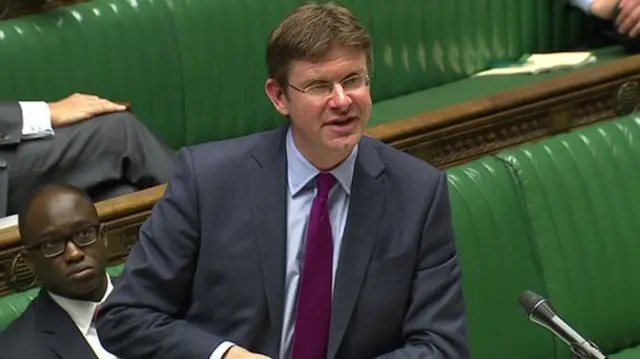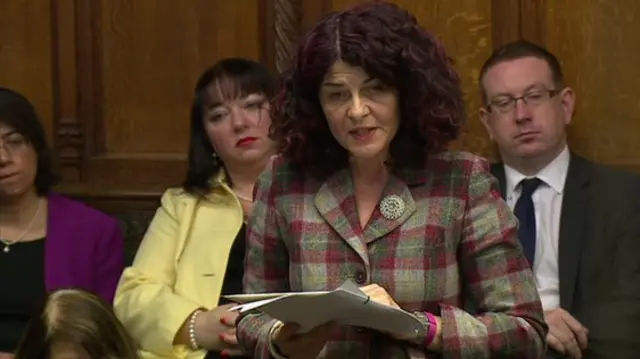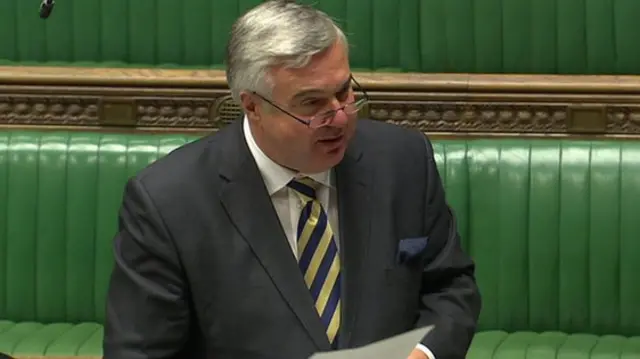'Right balance'published at 13:35 BST 21 October 2014
Drawing his remarks to a close, Greg Clark argues that the bill strikes the "right balance" between holding MPs to account while ensuring they can do their job "without facing frivolous or politically motivated petitions".


